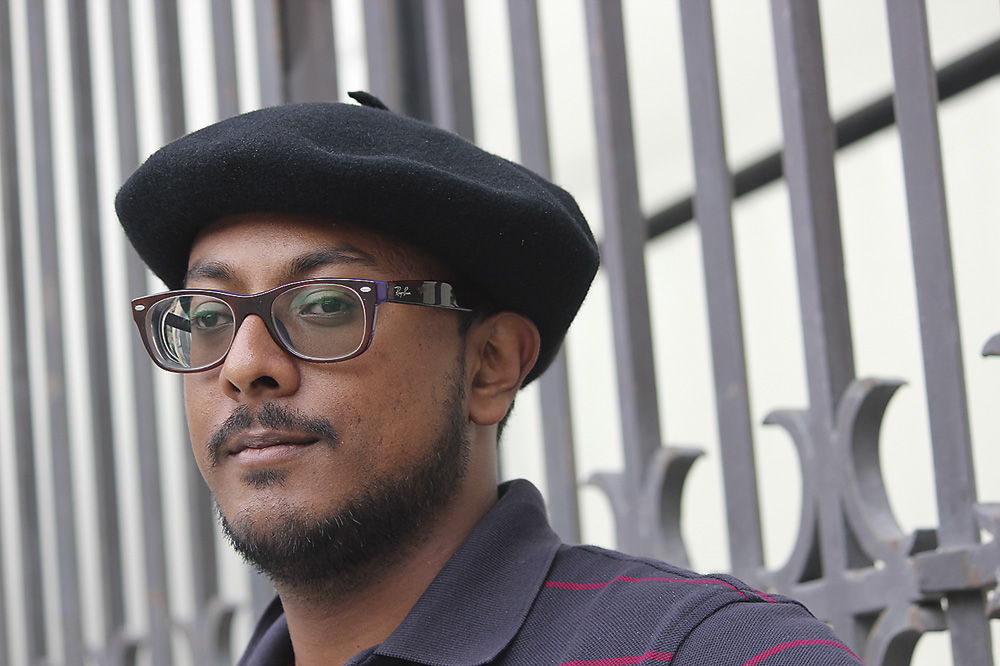"The Tamils firmly maintain linguistic transmission"
- Waran Kangeyan (Brent, London, United Kingdom, 1991) was formed in summer in the Basque Country. He is young and HIGA attended the Meeting of Young Language Speakers Minorizadas.Es a Tamil, but has not been born in Sri Lanka or in India. He traveled to Vitoria-Gasteiz from London to meet young people who speak in minority languages.

Forced by racism and discrimination against ethnic Tamils in northern Sri Lanka, Kangeyan's grandfather moved to Europe in the middle of the 20th century, and after his footsteps came, drop by drop, the rest to England. Born there, he grew up in English in Kangeya. “Parents spoke Tamil, but we, brothers, have better ability in English than in Tamil. After I grew up, I went to India, spent a few months in the Tamil Nadu region, and I started speaking in Tamil. It wasn't easy, their pronunciation was different from the one I had heard at home. Today, I have no difficulty understanding. The knots come to me when I have to talk.”
In addition to northern Sri Lanka, Tamil Nadu, in India, also has a presence in the country where Tamil, Hindi and English are co-languages. There's the conflict. “The Tamils want to keep their language. In India, to begin with, Hindi and English are the two official languages, but the Tamils do not live in Hindi or English. Without the language of the majority, they live in Tamil and want to live in Tamil, against the pressures of Hindi supporters. The Tamils maintain the transmission between the knees, at school they also study in Tamil... However, it is a minority language. You just have to go to the police station, soon you'll be told to speak or English, don't speak in Tamil." And the situation is no better in Sri Lanka, the territory of the Tamil ethnicity. “Our people are discriminated against, racism is still there. Tamil, for its part, is a minority language and the future is not clear. Many Tamils have left Sri Lanka...”.
There are also media in Tamil, although they have a great border: freedom of expression: “For example, it’s a local press in Tamil, but it can’t speak against government. This is not a free matter. Dozens of journalists have been killed in recent decades, according to the same sources. The press has received several attacks.” Between 1983 and 2009, the civil war in Sri Lanka is always behind, the desire for independence of the Tamil people. “Our community wants to vote, as do the Catalans and perhaps the Basques. He doesn't want to depend on anyone. They were not given the opportunity. And many followed the path of violence. In this environment the Tamil library was burned, 19,700 books and manuscripts were lost, 2,000 years of written tradition!”
He accepted the HIGA Congress. “In my opinion, it has been an example, it has served to show how to organize an international congress. Simultaneous translation services and so on. It was very interesting to me. I've seen that every linguistic community is making its own way. Everyone suffers from some oppression and a counter-language policy.”
Regarding the Basque Country, Waran Kangeyan says: “It’s an example for communities that want to reclaim language, a source of inspiration.”
And there it is, with the txapela in the head, in the world. “In some part of the Basque Country, the txapela has spread throughout the Basque Country, it has been used by many writers and artists, and so I use it as well.”










